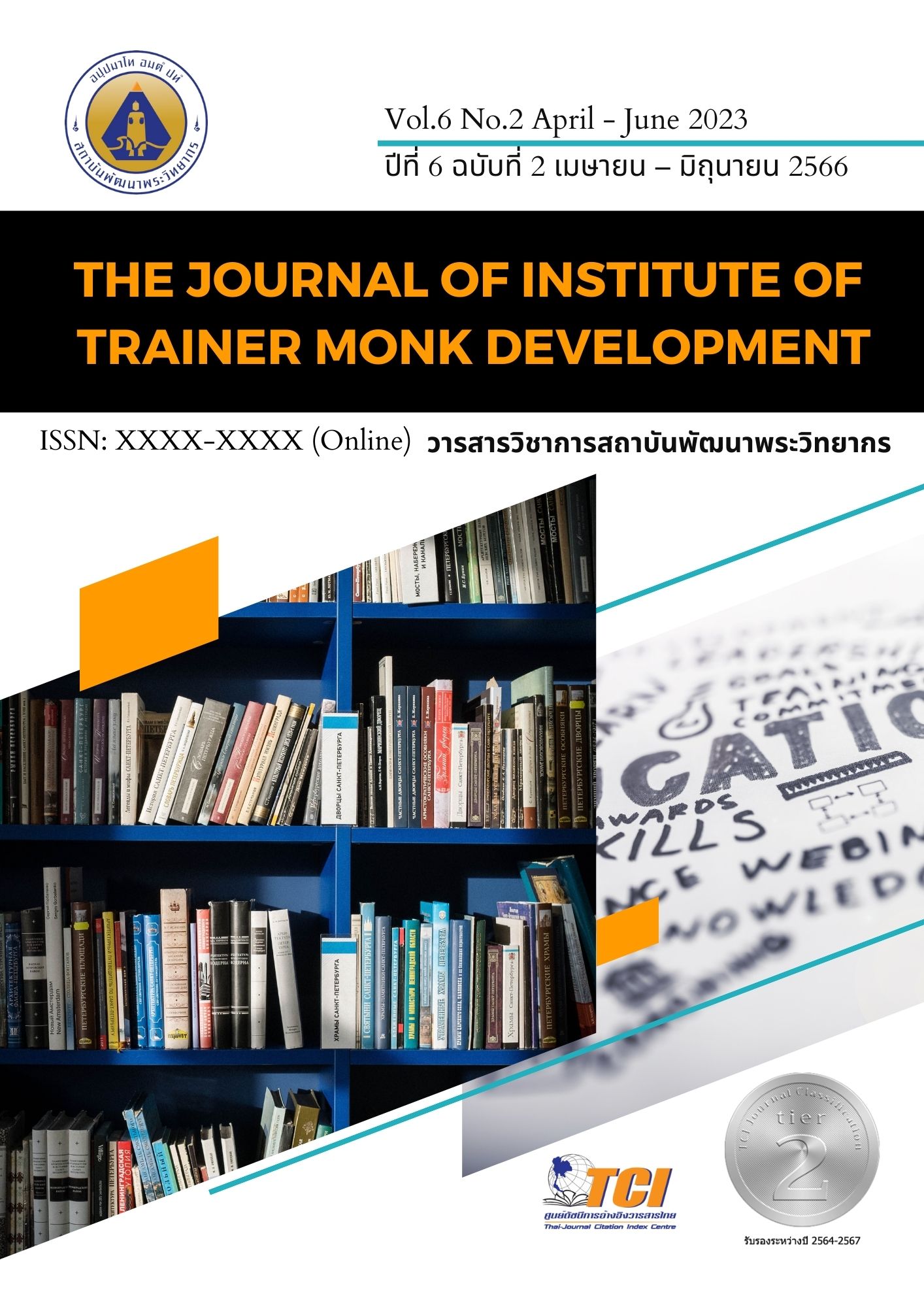Creating Consciousness of the Buddhist Youth Human Rights in Educational Institutions in Samut Sakhon Province
Main Article Content
Abstract
The objectives of this study were: 1) to investigate the knowledge and understanding of the human rights of youth in educational institutions in Samut Sakhon province 2) to investigate the understanding of Buddhist human rights of youth in educational institutions in Samut Sakhon province and 3) to raise Buddhist human rights awareness of youth in educational institutions in Samut Sakhon Province. This is the qualitative research and the information was collected through in-depth interviews with key informants (8 Populations) by analyzed using descriptive and descriptive data analysis methods. The research results found that (1) Understanding the human rights of youth in educational institutions in Samut Sakhon Province. The youth have knowledge and understanding the human rights and exercise their fundamental rights in education. Including the rights to vote in student council elections, to express one's opinion, and to exercise one's rights in educational institutions, equality in education, the right to use various facilities of the educational institution. (2) An Applying the Buddhist human rights by youth in educational institutions through applying the principles of virtue, righteousness, and ethics. The youth understand how to apply the Dhamma as a guide for practicing human rights. They have learned the principles of the teachings from studying Buddhism in educational institutions and living Buddhism in everyday life. Understand the code of doing good, avoiding evil, and behaving like an ethical person, that is, a person who has compassion for others. 3) Creating Consciousness of the Buddhist Youth Human Rights in Educational Institutions in Samut Sakhon Province. The fact that the youth, as students, use the five precepts, and ethics as a guideline for exercising human rights, is considered to instill a good conscience.
Article Details

This work is licensed under a Creative Commons Attribution-NonCommercial-NoDerivatives 4.0 International License.
บทความที่ได้รับการตีพิมพ์เป็นลิขสิทธิ์ของวารสารวิชาการสถาบันพัฒนาพระวิทยากร
ข้อความที่ปรากฎอยู่ในบทความที่ได้รับการตีพิมพ์ในวารสาร ถือเป็นความรับผิดชอบของผู้เขียนบทความ และข้อคิดเห็นนั้นไม่ถือว่าเป็นทัศนะและความรับผิดชอบของกองบรรณาธิการวารสารวิชาการสถาบันพัฒนาพระวิทยากร
References
จรัล ดิษฐาอภิชัย. (2561). คู่มือสิทธิมนุษยชน ฉบับพลเมือง. กรรมการสิทธิมนุษยชนแห่งชาติ สถาบันนโยบายศึกษา.
พระสันต์ทัศน์ ฐิตาจาโร (ปรีดาศักดิ์). (2561). จิตสำนึกสาธารณะกับการพัฒนามนุษย์ตามหลักพุทธธรรม. วิทยานิพนธ์พุทธศาสตรมหาบัณฑิต สาขาวิชาพระพุทธศาสนา. บัณฑิตวิทยาลัย: มหาวิทยาลัยมหาจุฬาลงกรณราชวิทยาลัย.
บุญแทน มะลิอ่อง. (2554). หลักธรรมในพุทธศาสนาเถรวาทกับการส่งเสริมสิทธิมนุษยชน. วิทยานิพนธ์พุทธศาสตรมหาบัณบัณฑิตวิทยาลัย. บัณฑิตวิทยาลัย: มหาวิทยาลัยมหาจุฬาลงกรณราชวิทยาลัย.
วิชัย สังข์ประไพ. (2564). หลักสิทธิมนุษยชนในประเทศไทย. สืบค้นข้อมูลเมื่อวันที่ 5 ตุลาคม 2565จาก https://shorturl.asia/wQYRx [5.
ชวรัตน์ มารุ่งเรือง. (ม.ป.ป.). สิทธิมนุษยชน: ความเหมือนที่แตกต่าง เอกสารวิชาการส่วนบุคคล หลักสูตรนิติธรรมเพื่อประชาธิปไตย รุ่นที่ 4. สำนักงานศาลรัฐธรรมนูญ: วิทยาลัยรัฐธรรมนูญ.
ภัทรพล หมดมลทิน. (2559). พุทธบูรณาการเพื่อพัฒนาเยาวชนให้เป็นคนดี. วิทยานิพนธ์พุทธศาสตรมหาบัณฑิต สาขาวิชาพระพุทธศาสนา. บัณฑิตวิทยาลัย: มหาวิทยาลัยมหาจุฬาลงกรณราชวิทยาลัย.
Amnesty International Thailand. (2564). สิทธิมนุษยชนศึกษา. สืบค้นเมื่อวันที่ 1 ธันวาคม 2565 จาก https://www.amnesty.or.th/our-work/hre/


